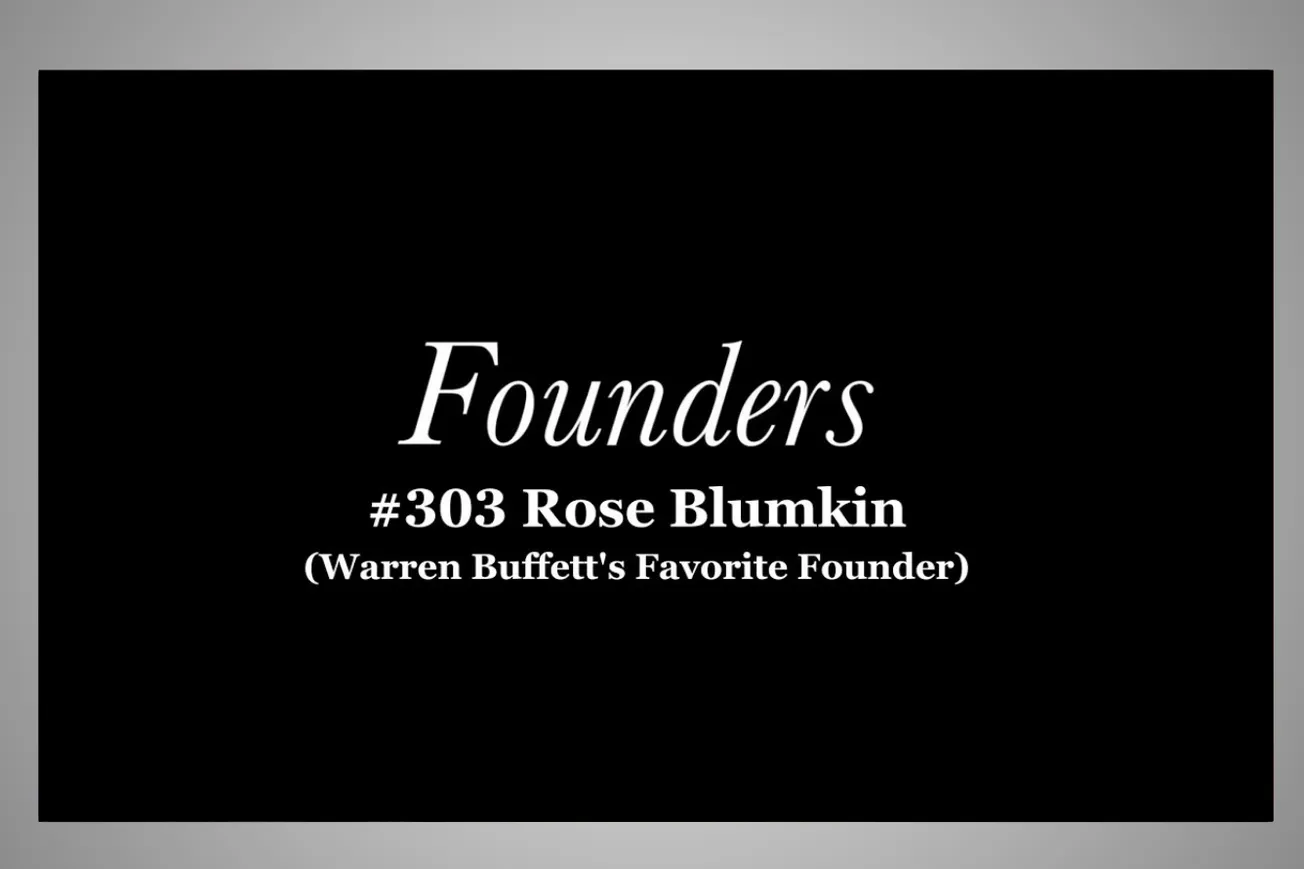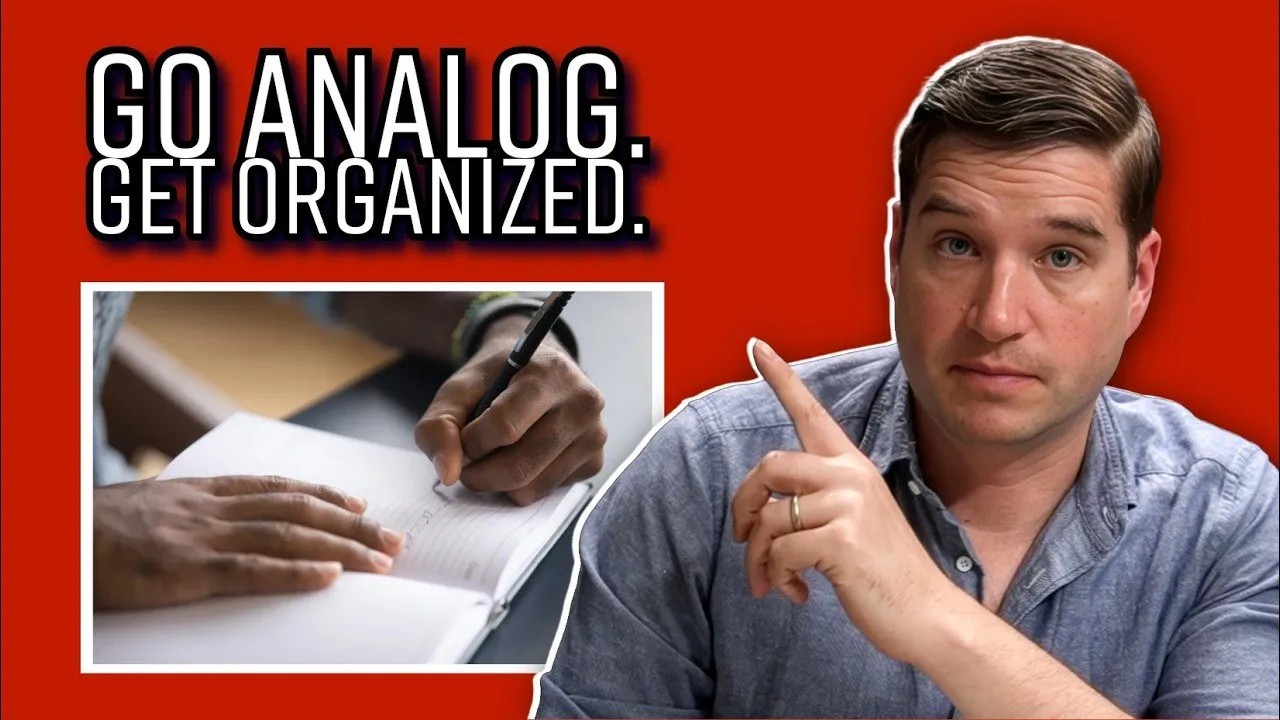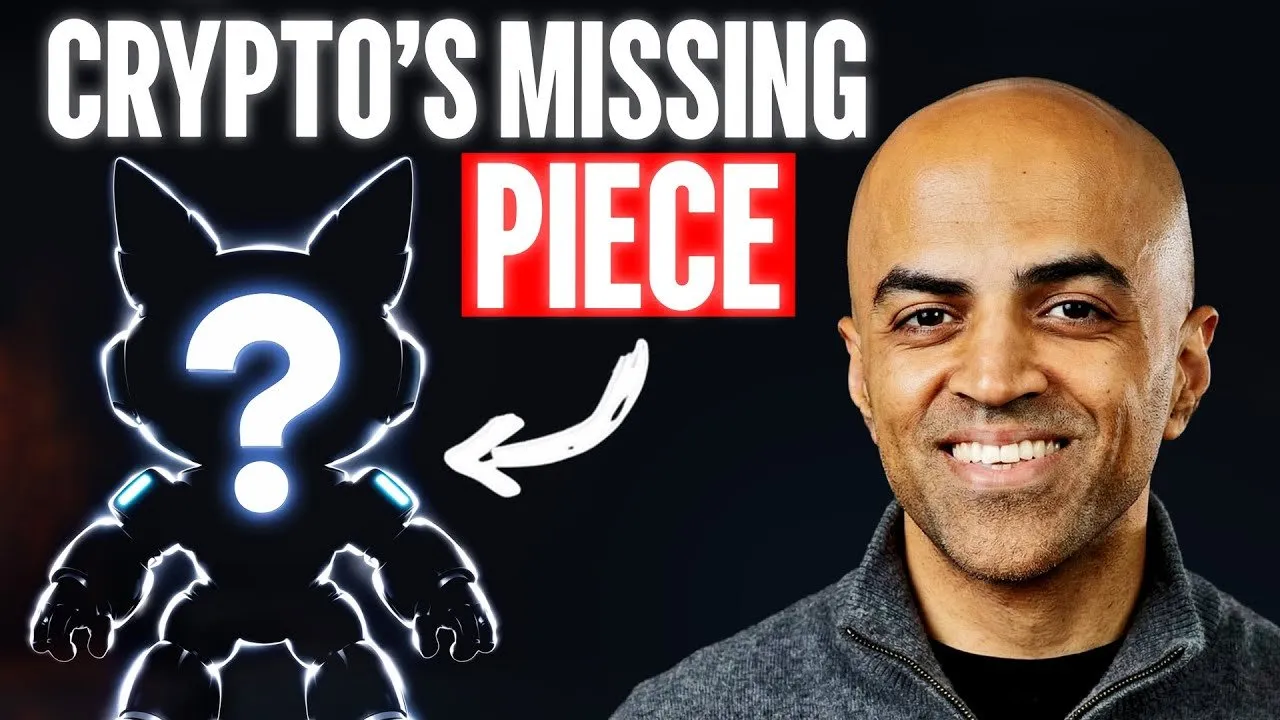Table of Contents
The remarkable story of Rose Blumkin, who built Nebraska Furniture Mart from a $500 basement into a business worth millions, earning Warren Buffett's ultimate respect.
Key Takeaways
- Rose Blumkin immigrated to America with $66 and no formal education, yet built Nebraska Furniture Mart into a dominant retailer
- Her business philosophy was elegantly simple: "sell cheap and tell the truth" with 10% markup over cost
- She worked 12-14 hours daily, 7 days a week until age 103, treating work as her hobby rather than burden
- Warren Buffett called her a "business genius" and said he'd "rather wrestle grizzlies than compete with Mrs. B"
- She pioneered discount retailing principles decades before Walmart, focusing on small profits and large volumes
- Her competitors regularly went out of business, with their closure advertisements framed on her office walls
- Buffett acquired Nebraska Furniture Mart for $60 million in 1983 with just a handshake deal
- She was so competitive that at age 96, she started a rival business after conflicts with her grandsons
- Her relentless focus on customer value created "exceptional economics" through exceptional customer service
- She became the first female Berkshire Hathaway manager and worked until shortly before her death at 104
Timeline Overview
- 00:00–18:30 — Russian Childhood and Early Hardships: Born near Minsk in two-room log cabin, sleeping on straw mats, working in mother's store from age 6, leaving home barefoot at 13 to find work managing stores by age 16
- 18:31–32:45 — Immigration Journey and American Arrival: Husband immigrates first while Rose works three years saving money, dangerous border crossing with fake story about buying leather for army, six-week journey on Japanese boat, arriving in America with $66
- 32:46–48:20 — Early American Struggles and Learning English: Moving to Omaha for Russian-speaking community, daughter Francis teaching her English after school, husband's struggling clothing store during Depression, Rose taking control of business operations
- 48:21–01:05:15 — Building the Foundation and Early Success: Starting with $500 loan in 1937, opening 30x100 foot basement store, revolutionary 10% markup strategy, getting sued by competitors for "unfair trade practices" of charging too little
- 01:05:16–01:22:40 — Overcoming Obstacles and Expansion: 1950 cash crisis solved with auditorium sale earning $250,000, husband's death after 36 years marriage, 1961 fire creating successful fire sale, 1975 tornado leading to expansion opportunity
- 01:22:41–01:38:25 — Warren Buffett Acquisition and Recognition: Buffett's failed 1960s $7 million offer rejected as "cheap," 1983 handshake deal for $60 million, becoming first female Berkshire Hathaway manager, national recognition for mathematical genius
- 01:38:26–01:52:10 — Family Conflicts and Competitive Rebellion: Age 96 conflicts with grandsons over carpet department control, quitting to start competing business across the street, Buffett having to buy her out again for $5 million with non-compete clause
- 01:52:11–02:05:30 — Final Years and Legacy Recognition: Reconciliation with family and Buffett, official retirement at 103, receiving honorary college degrees despite never attending school, death at 104 with Buffett's tribute to her business genius
From Russian Village to American Dream: The Foundation Years
- Rose Blumkin's early life in a village near Minsk, Russia, was marked by extreme poverty and hardship that would forge her legendary work ethic. She lived with seven siblings in a two-room log cabin, sleeping on straw mats while her father, a rabbi, devoted his days to religious study. Her mother ran a small general store and bore the entire burden of supporting the family, as Rose's father believed his religious duties exempted him from earning income.
- At just six years old, Rose began helping her mother in the store, witnessing firsthand the crushing demands of running a business while managing a large family. One night, she woke to find her mother washing clothes and baking bread for the next day, prompting young Rose to make a promise that would drive her entire life: "When I grow up you're not going to work so hard. I can't stand it the way you have to work day and night."
- Rose's entrepreneurial independence emerged early when she left home at age 13, walking barefoot for 18 miles to catch a train. She stowed away and traveled 300 miles to a small town near the Ukrainian border, going shop to shop looking for work. When one store owner dismissed her as "just a kid," Rose's response revealed her future business philosophy: "I'm not a beggar." With only four cents in her pocket, she convinced the owner to let her sleep there and work the next day.
- By age 16, Rose had become the manager of that store, demonstrating the business acumen and determination that would later impress Warren Buffett. Her early experiences taught her that success came through hard work, attention to detail, and treating customers fairly—lessons that would become the foundation of Nebraska Furniture Mart's revolutionary approach to retail.
- When Rose married Isidor Blumkin in 1914, her wedding feast consisted of "2 pounds of rice and 2 pounds of cookies that was the wedding feast"—a humble beginning that contrasted sharply with the wealth she would later create. World War I's eruption forced difficult choices, with Isidor immigrating to America alone while Rose worked for three more years in a dry goods store, saving every penny for her own passage.
- Rose's dangerous journey to America exemplified the resourcefulness that would characterize her business career. At the China-Russia frontier, she lied to a rifle-bearing soldier, claiming she was buying leather for the army and promising to bring him vodka upon her return. "I suppose he's still there waiting for his vodka," she later laughed. After traveling through China and Japan, she endured six miserable weeks on a Japanese boat before arriving in Seattle with $66 in her purse.
The Depression-Era Innovation: Creating the Discount Model
- Rose's entry into the furniture business came from necessity during the Great Depression when her husband's clothing store began failing. "The depression came and my husband came home and said we'll starve to death, nobody walks in, what will we do?" Rose already had four children by 1930, making the family's survival her responsibility. Her husband's fundamental business problem was that "he would sell clothing at the same price that he had paid for it—he didn't understand how to make a profit."
- Drawing on her decades of retail experience starting from age six, Rose implemented a revolutionary strategy that would later be copied by retail giants like Walmart and Costco. Her approach was deceptively simple: "Let's sell 10% over cost and I'll come to your store and show you how and help you because I did build a big business in Russia for my boss and I knew business." This low-margin, high-volume strategy was decades ahead of its time.
- Rose's commitment to transparency and honesty became her competitive advantage in an industry known for inflated markups and deceptive practices. "I never lied. I showed them the bill and then they all respect me. You should see what kind of customers I have—the best in the world. They build me one of the finest businesses in the country. I always believed in honesty. Anything is wrong, I try to make it right."
- The trust this approach generated created customer loyalty that lasted generations. Families would shop at Nebraska Furniture Mart across multiple generations because they knew Rose would give them fair pricing and stand behind her products. This long-term thinking contrasted sharply with competitors focused on maximizing short-term profits from individual transactions.
- Rose's home became an extension of her business, with visitors finding furniture displayed with price tags and lamp sheets still covered in plastic wrap. "If a guest expressed interest in a piece, it was available for sale." This total integration of life and business reflected her view that entrepreneurship wasn't just a job but a complete lifestyle commitment.
- Her early promotional innovations demonstrated sophisticated marketing understanding despite her lack of formal education. She printed 10,000 flyers offering to "dress a man from head to toe for $5" in the 1930s, generating $800 from this single promotion—a significant sum that provided capital for expanding her furniture operations and proved her ability to create compelling value propositions for customers.
Revolutionary Business Practices and Competitive Dominance
- When Rose opened Nebraska Furniture Mart in 1937 with a $500 loan from her brother, she was 43 years old with four children aged 10-19. The store occupied just a 30x100 foot basement room, but Rose's competitive fire was immediately evident. "The same day I opened, another furniture store was opening. They had an orchestra, music, and Hollywood stars, and I only had a three-line ad because I was poor. I did that day a big business. I couldn't get over it."
- Rose's pricing strategy created such a competitive advantage that competitors resorted to legal action, inadvertently providing her with invaluable publicity. When she secured carpet wholesale at $3 per yard and sold it for $3.95 while competitors charged $7.95 for identical carpet, they called her a "bootlegger." Her response became legendary: "You bet I'm the best bootlegger in town." The resulting lawsuit for "unfair trade practices" backfired spectacularly when the judge threw out the case and bought $1,400 worth of carpeting from Mrs. B the next day.
- The competitive landscape in Omaha became so dominated by Nebraska Furniture Mart that most furniture stores found it "futile to attempt to compete" with Rose. She displayed the "going out of business" advertisements from failed competitors framed on her office walls—both as a reminder of how quickly businesses could fail and, knowing Rose's personality, as trophies of her competitive victories. "I outlived them all," she would say with evident satisfaction.
- Rose's approach to handling business crises revealed her genius for turning problems into opportunities. During a 1950 cash flow crisis, she rented the Omaha City Auditorium for $200 per day and held a three-day sale that generated $250,000—five times what she needed to pay off her $50,000 loan. When fire destroyed half her store in 1961, the resulting fire sale created lines two blocks long for discounted smoke-damaged merchandise. After a 1975 tornado destroyed the entire building, she bought the adjacent post office land to expand even larger.
- Her mathematical abilities became legendary despite never attending school. During a nationally televised ABC 20/20 interview, she would answer complex calculations instantly—"if carpet's $12.95 a yard and I want 30 yards, how much is that?" Before the interviewer could finish asking about room dimensions, she'd interrupt: "19 yards." This wasn't innate genius but the result of five decades of daily practice calculating carpet measurements for customers.
- Rose's management philosophy was brutally direct: "Business is like raising a child—you want a good one, a child needs a mother and a business needs a boss." She was notorious for her harsh treatment of employees, frequently firing people only to have her more diplomatic son Lou hire them back. However, her relationship with customers was the opposite—she charmed them while being "terribly abusive to her employees," according to former staff members.
The Warren Buffett Partnership: Mutual Recognition of Genius
- Warren Buffett's fascination with Nebraska Furniture Mart began through his Omaha residency, where he could observe firsthand the store's dominance and Rose's business acumen. His first acquisition attempt in the late 1960s offered $7 million for the business, which Rose rejected while calling him "cheap"—a response that probably increased rather than decreased Buffett's respect for her business judgment and negotiating skills.
- Twenty years later, when Buffett returned with a $60 million offer for 90% of the company, the negotiation was remarkably simple. "How much?" Buffett asked. "$60 million," Mrs. B replied. They shook hands, and Buffett drew up a one-page agreement. Mrs. B, who couldn't write in English and barely read it, made her mark at the bottom. Most remarkably, the deal involved no lawyers, no audit, and no inventory count—unprecedented for an acquisition of this size.
- Buffett's assessment of Rose revealed why she became his favorite entrepreneur: "If she ran a popcorn stand, I'd want to be in business with her. She's just plain smart, she's a fierce competitor, and she's a tireless worker." More importantly, he identified the key question every entrepreneur should ask themselves: "One question I always ask myself in appraising a business is how I would like, assuming I had ample capital and skilled personnel, to compete with it. I would rather wrestle grizzlies than compete with Mrs. B."
- The economics of Nebraska Furniture Mart impressed Buffett because it represented "the ideal business—one built upon exceptional value to the customer that in turn translates into exceptional economics for its owners." Rose had achieved what most businesses struggle with: creating a sustainable competitive advantage through customer value rather than artificial barriers or marketing manipulation.
- Rose's reciprocal admiration for Buffett reflected her appreciation for honesty and straightforward dealing: "My hero is the middle class, the immigrants, and Warren Buffett. He's a genius. I respect him a lot. He is very honest, very plain, and his word is as good as gold." This mutual respect created a partnership that benefited both parties while maintaining Rose's operational independence.
- The acquisition made Rose the first female Berkshire Hathaway manager when she was just shy of 90 years old. Rather than signaling retirement, this change in ownership energized her to work even harder, maintaining her 12-14 hour daily schedule seven days a week until age 103. Buffett's hands-off management style allowed Rose to continue operating according to her proven principles while providing the capital backing of Berkshire Hathaway.
Family Dynamics and the Competitive Fire at Age 96
- Rose's relationship with different generations of her family revealed the complexity of maintaining family businesses across multiple generations. While she loved working with her son Lou, who had joined the business after World War II and provided a calming balance to her explosive temperament, she clashed dramatically with her grandsons Ronald and Irvin, whom she referred to using "the name Hitler" due to their attempts to control pricing and operations in the carpet department.
- The conflict that led to Rose's departure at age 96 centered on control—the fundamental issue that drives most entrepreneurial personalities. Her grandsons wanted to modernize operations and implement their own management ideas, while Rose viewed any changes to "her domain" in the carpet department as personal betrayal. "I'm very independent. If things aren't run the way I want it, I don't like it and I get very mad."
- Rose's response to losing control was characteristically extreme and competitive. Rather than accepting reduced authority, she quit and announced plans to start a competing business: "It'd probably be the first for a 96-year-old woman to start a business, but I feel capable of doing it and want to prove to Buffett and my grandsons... I could outsmart any 25-year-old." Her new store was strategically located directly adjacent to Nebraska Furniture Mart, maximizing competitive pressure.
- During her brief period of "retirement," Rose hired a chauffeur to drive her around Omaha daily, where she would check competitor parking lots and plan her next moves. When asked if she wanted to see Nebraska Furniture Mart go out of business, she replied with typical directness: "It should go up in smoke. I like that. They should go to hell." Her ability to make decisions without hesitation or second-guessing remained intact: "She'd buy 5,000 tables or sign a 30-year lease or buy real estate or hire people. There was no looking back. She just swung."
- The resolution required Warren Buffett to buy Rose out a second time, paying $5 million for Mrs. B's Warehouse while allowing her to maintain control of the carpet department—essentially buying the same business twice because of family dynamics. This time, Buffett ensured she signed a non-compete agreement, though at age 99, enforcement seemed more symbolic than practical.
- The reconciliation process began when Buffett, demonstrating his understanding of Rose's personality, brought her roses and chocolates two days before her 99th birthday. "He's a real gentleman," she said after accepting his peace offering. This gesture led to broader family reconciliation, with Rose eventually admitting, "Maybe I was wrong, maybe I was too hard on them" regarding her grandsons, though she maintained that control remained her top priority.
Legacy and Lessons from a Business Genius
- Rose's educational achievements despite never attending school demonstrated that formal education, while valuable, isn't necessarily the determining factor in business success. She received distinguished college degrees later in life, recognizing her practical business education through five decades of hands-on retail experience. Her mathematical savvy developed through millions of customer interactions, not classroom instruction.
- Her perspective on America remained profoundly grateful throughout her life, shaped by her journey from poverty in Russia to wealth in Omaha. At every family gathering, she insisted on singing "God Bless America," telling relatives: "The people who were born in this country don't appreciate all these wonderful things like those who've come from out of darkness. I love the United States since the day I came here." This appreciation likely fueled her determination to maximize the opportunities America provided.
- Rose's work philosophy revealed why she could maintain such intensity until age 103: "My hobby is figuring out how to advertise, how to undersell, how much hell to give my competitors." Work wasn't a burden but her primary source of intellectual stimulation and competitive satisfaction. When asked about favorite activities, her responses were all business-related: visiting customers at her store on Sunday afternoons, driving around checking competition in the evenings.
- The principles Rose developed became part of Nebraska Furniture Mart's permanent culture: running the company as if "the depression is coming back," maintaining zero debt, and focusing on fiscal conservatism despite success. These Depression-era lessons created resilience that enabled the business to thrive across multiple economic cycles and remain profitable even during challenging retail environments.
- Warren Buffett's ultimate tribute to Rose emphasized her practical wisdom over theoretical business knowledge: "Aspiring business managers should look hard at the plain but rare attributes that produced Mrs. B's incredible success. Students from 40 universities visit me every year, and I have them start the day with a visit to the Nebraska Furniture Mart. If they absorb Mrs. B's lessons, they need none from me."
Conclusion
Rose Blumkin's life demonstrates that extraordinary business success can emerge from the simplest principles: sell cheap, tell the truth, work harder than anyone else, and never compromise on customer value. Her journey from a Russian village to becoming Warren Buffett's most admired founder proves that formal education and privileged backgrounds, while helpful, cannot substitute for relentless work ethic, competitive fire, and unwavering commitment to serving customers better than anyone else.
Practical Implications
- Focus on creating exceptional customer value rather than maximizing short-term profits per transaction
- Build trust through radical transparency in pricing and business practices
- Treat work as a source of intellectual stimulation and competitive satisfaction rather than a burden
- Develop deep expertise through daily practice rather than relying solely on formal education
- Make quick decisions without excessive analysis paralysis or second-guessing
- View obstacles and setbacks as opportunities to demonstrate resilience and creativity
- Maintain fiscal conservatism and low debt levels to survive economic downturns
- Ask yourself Buffett's key question: "Would competitors rather wrestle grizzlies than compete with me?"
- Remember that control and independence often matter more to entrepreneurs than maximizing financial returns
- Never underestimate the power of simple, consistently applied business principles over complex strategies





